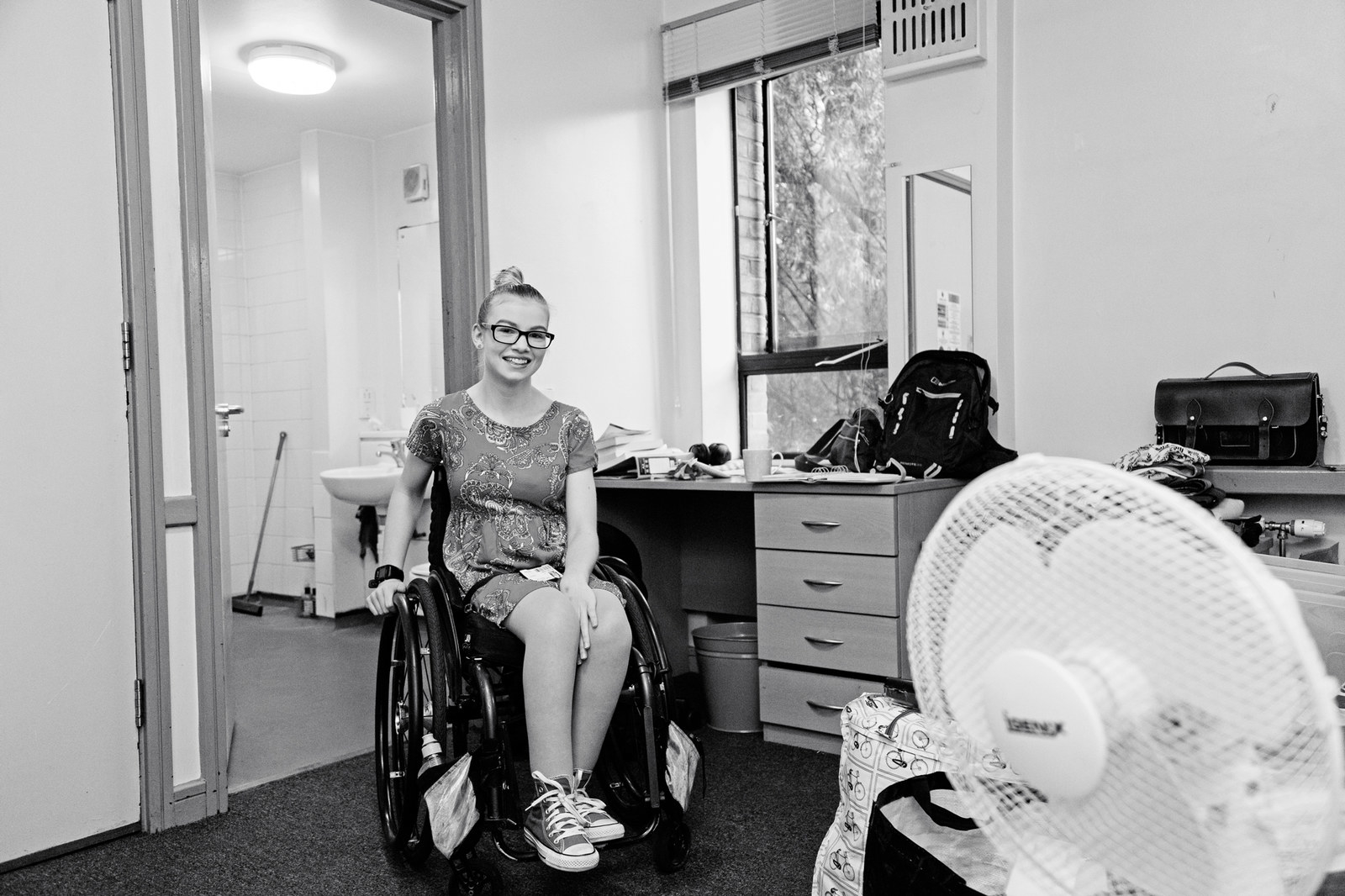“My disability has a name,” Katherine Toomey says. “I got pissed off about it when I was about 14 and my dad was like, ‘You realise all the things that you think are awful to do with you and your disability are actually just your disability?’ My mum said that thing was always known as Frank.”
When Toomey’s not referring to her cerebral palsy as “Frank”, her condition goes by its full name of moderate spastic diplegia with upper limb involvement. Roughly 400 children are diagnosed every year with cerebral palsy. It can come in a variety of forms and many people have a combination of the three main types: spastic, dyskinetic, ataxic. Nineteen-year-old Toomey’s condition is known as mixed – a catch-all term for elements of each. It means that she requires 24-hour care, and has done for as long as she can remember.
It also meant that her first week studying psychology at Queen Mary University of London brought some unusual challenges.
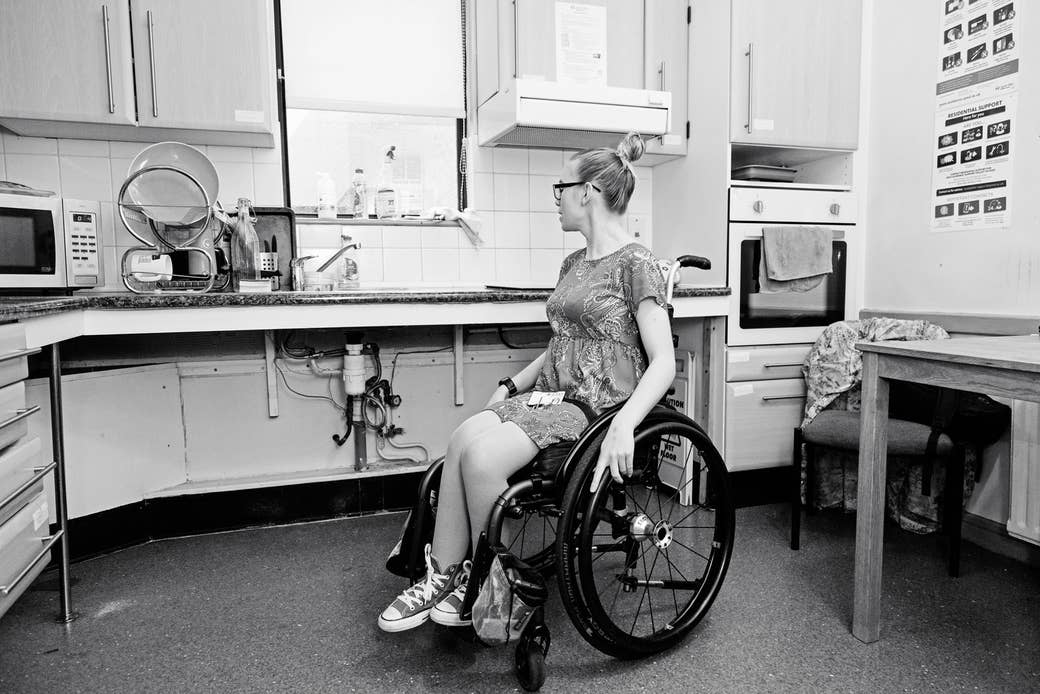
“As well as being my freshers' week for my first year at uni, and my first week away from home, it was also my first week of employing carers. I was dealing with trying to balance being an employer, with being a flatmate, with being away from my mum, who had been my carer for 18 years.”
Since then Toomey, whose family lives in Somerset and who is now in her second year, has employed 17 carers over the past two years, most of them staying with her for between six to nine months, so she is “constantly training them up”.
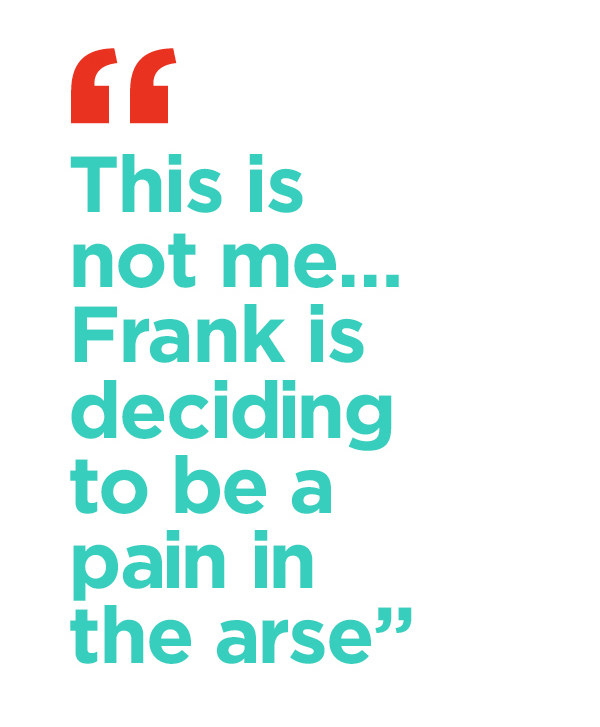
Toomey and her parents find her PAs, who are employed with money from her DLA (disability living allowance) fund, through agencies or individually on Gumtree. The PAs work either weekends or Sunday night through to Friday. When she started at university she initially employed two, who would sub in and out, but the number can fluctuate depending on scheduling. At one point, Toomey explains, she had seven PAs on call who she had to organise – because sometimes they get sick or have a personal commitment and can’t work.
“If anything goes wrong with my care packages then my parents have to come to the rescue. My poor mother, every time there’s a blip in terms of a girl getting sick, has to come down.”
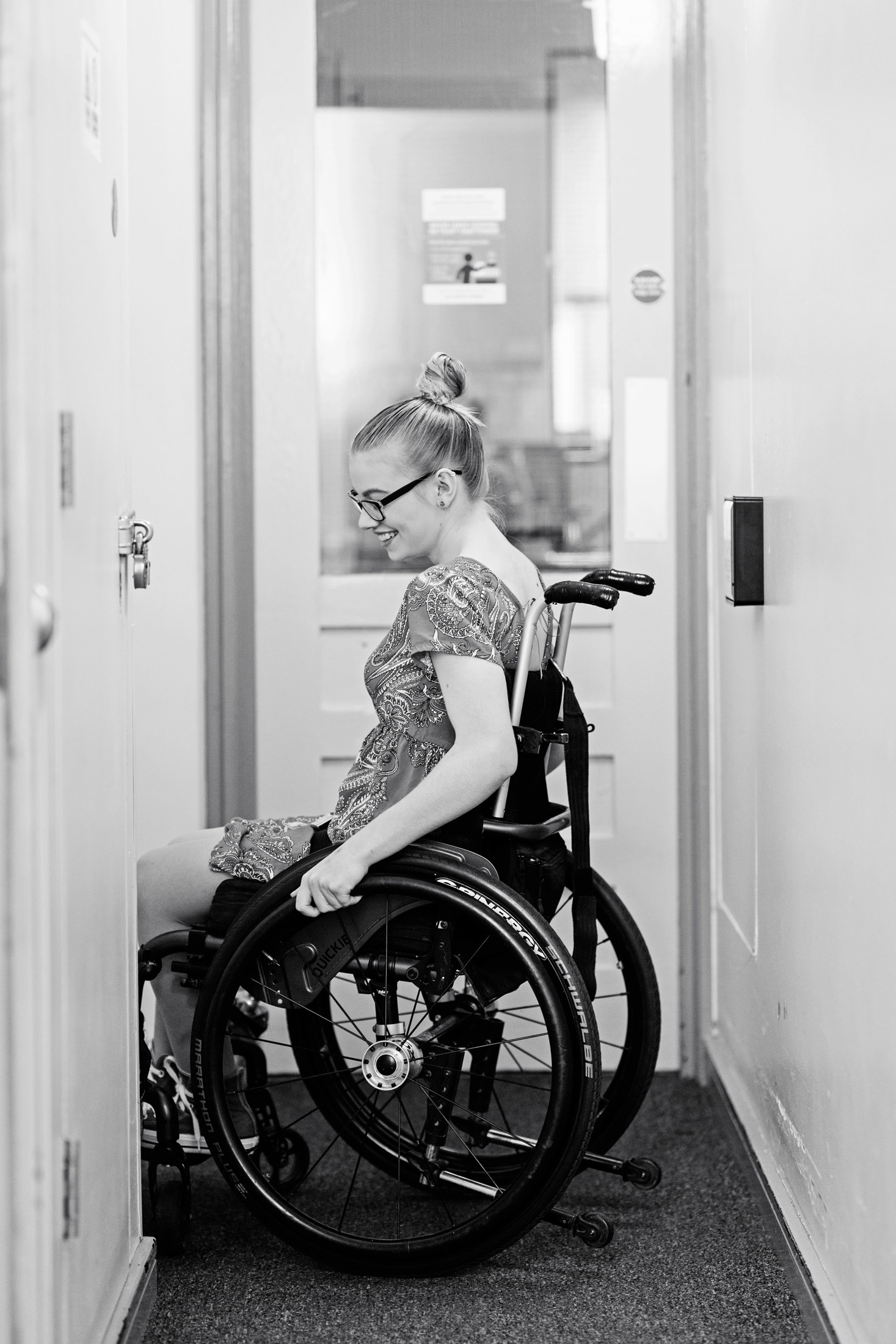
Her PAs are on call 24 hours a day, with a nine-hour break factored in somewhere along the day and night. “So you choose whether you get up early or go to bed late, and I can’t do the ‘OK, I’ve got an essay, so I am going to go to bed at 2 o’clock in the morning, and I’m going to get up at 6.’”
Her day will start between 4 and 6, when she’ll prop herself up in bed, having manoeuvred her iPad into her lap, and wait for her PA to come in to get her out of bed. Toomey’s PA will get her shoes on, help her into clothes, and tie back her hair, then they’ll go to the gym.
“Yesterday in the gym it was hilarious because my body was bouncing around all over the place as I had decided to do something out of my chair,” she said. “My body just started jiggling, like, literally spasming…and I was like, What the hell are you doing?!
“I’m sitting there, laughing with the PA, going: ‘This is not me… Frank is deciding to be a pain in the arse.””
After an hour at the gym, she heads back to the flat and is undressed by her PA, so she can shower. “I have to be totally comfortable in front of those people naked,” she says. “I have to feel as comfortable in front of them as I would with anybody I would have an intimate relationship with.”
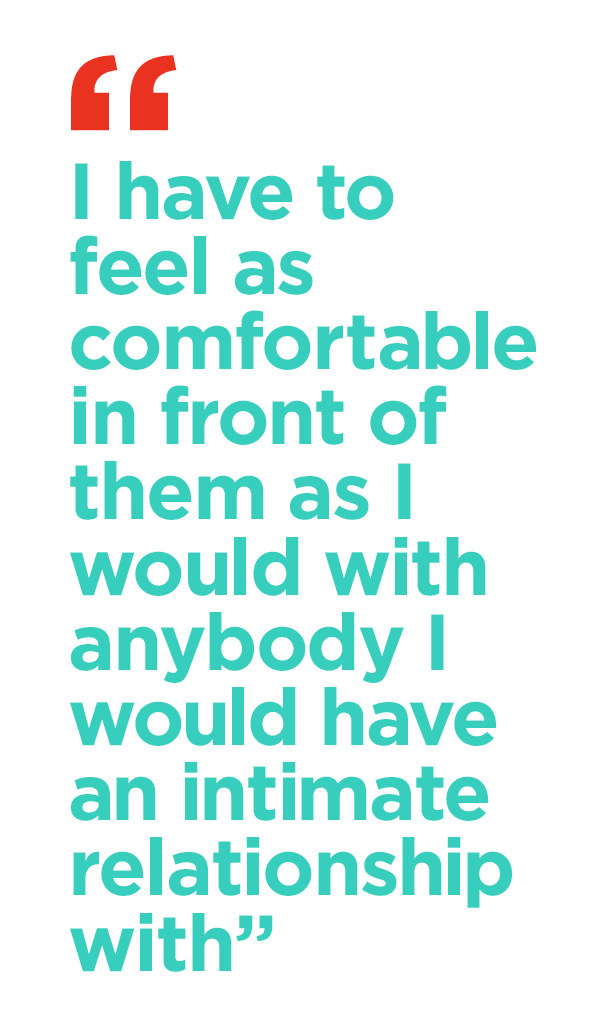
“The amount of trust that goes on with it is…” she trails off.
One of her goals growing up, she says, was to try to do as much of the “normal” stuff herself as she could. This requires creative adaptations: no squirty soaps or liquids can be used in the shower – if she spasms the liquid can make the floor slippery, which is dangerous for her and a nightmare for her PA. Instead she uses hard shampoos, conditioners, and smaller shower gel tubes that she can grip easily. Exfoliating is particularly important as it helps her increase the sometimes bad circulation in her legs.
Once out of the shower, Toomey’s dried and dressed by her PA. “I obviously have to wear clothes that I can get on or off, or the girls can get on and off me. They hate some of the stuff I wear,” she explains with a grin.
“Oh my god, shirts are a nightmare. Shirts are a big no-no. They are kind of the world’s worst nightmare, barring – and my mum’s probably going to go ‘Why are you saying this, because you really like skinny jeans?’ – skinny jeans are terrible, terrible things.”
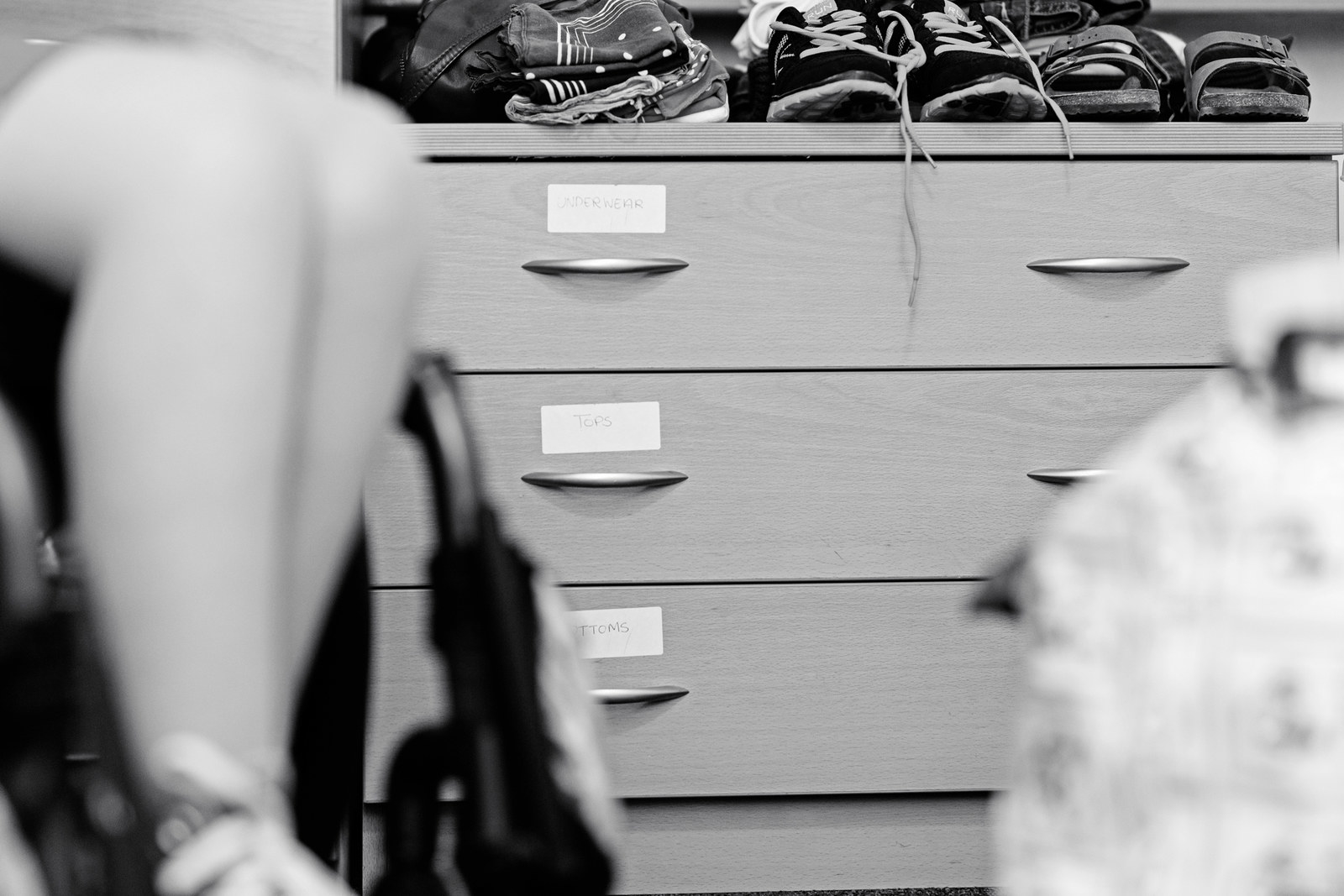
Toomey, who is learning Norwegian as well as studying psychology, has just finished her second-year exams. “I [had been] been distracting myself from revision and I was watching that Netflix series The Crown.” The way the royal family are attended to in the show resonates with her a lot: “It’s not too dissimilar to what the girls do for me. I don’t do my own makeup, I don’t do any of my own hair, I don’t do anything. It’s weird.”
“They are not just my carers,” she says. “In some ways they are my friend, my mum, they are everything wrapped in one. It’s a very complex relationship you have with them, because somehow you have to strike that balance between being an employer and being someone’s friend. It’s very awkward and sometimes those lines get blurred.”
When she started at university, she says, she had a carer only a few years older than her, because she was initially adamant she didn’t want anyone “old” (over 30). Although she’s relaxed this rule slightly, “the people I employ don’t look like carers. They look like people who could be my friends, or my sister. It’s very un-obvious.”

Her PAs will accompany her to university classes, where they are always close should she need them. “A lot of my friends don’t even realise I have full-time care,” she says. “I look physically quite able-bodied, but behind the scenes this is all a facade for what I can’t do – which is everything.”
And they come with her everywhere. “It’s almost like you would not invite a friend to do something if you didn’t think that they were going to enjoy it,” she says. “I choose my activities [based] on who I have caring for me.”
Because of the intense nature of working so closely with someone, Toomey says, “you can’t take it for that long.” A friend recently asked her how much time she has alone, and Toomey reckoned she probably gets about an hour by herself each day. “Literally, the toilet is my only place of me time.
“Physically, they are always in your space and it’s not always through choice. I think that’s where it differs from relationships. It’s a much more one-sided thing where you have to rely on that person.”
Toomey has recently come out of a relationship. While she and her boyfriend were together – they met while she was at school – he could double as her carer, say, if they went away together.
But she hasn’t met anyone at university, because it’s hard to start anything up, she says, without explaining straight off the bat that she “comes with an extra pair of hands” and even then, “doing boyfriends and mothers is one thing – but doing boyfriends, mothers, and carers is a totally different dynamic.”
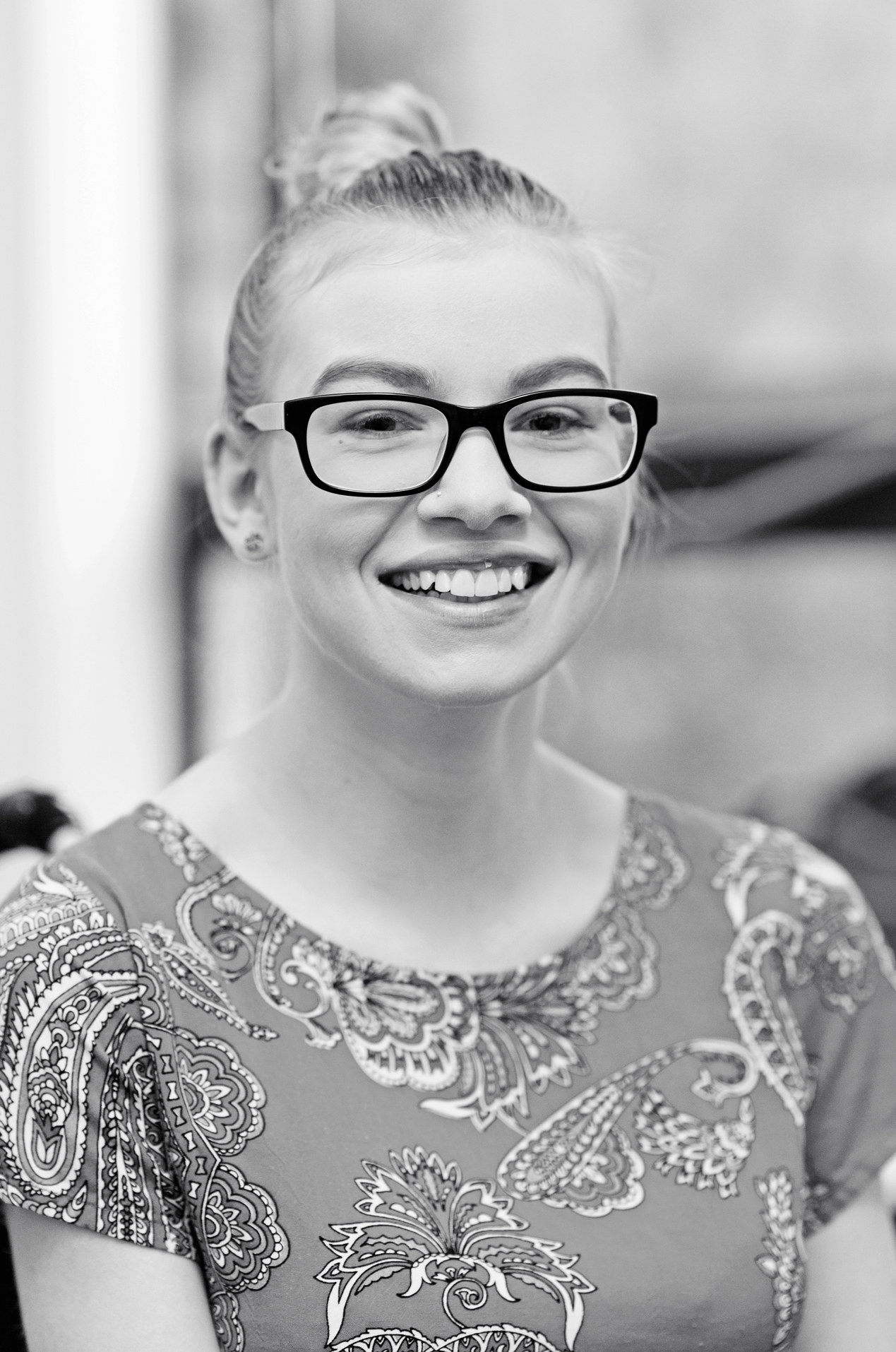
Even when a potential partner understands her situation, she says, there are myriad minefields. “People assume that it’s fine for a disabled guy to be looked after by a girl, but it’s not OK for a disabled girl to be looked after by a bloke who is not your partner, and that really frustrates me,” Toomey says. She thinks the guy who she was seeing would never have gone for her had her PA been male. But “boyfriends are optional. Carers are not.”
In much the same way, her relationship with her family has been moulded by her condition and the help she needs. “I had a mum who was also my carer, and it was a very different dynamic to a lot of mums and a lot of their daughters.”
Although Toomey employs her own carers, and the “day-to-day onus” is on her, her mum still signs off on some of the paperwork. “In her head she’s got this thing where she’s ready to let go of being my carer, but her maternal instinct is to do it all for me,” she says. Toomey recalls how difficult it was after going to university “to try and rebuild a normal mother-daughter relationship where there are restrictions on what is acceptable, with someone who for so much of my life there was no restriction.”
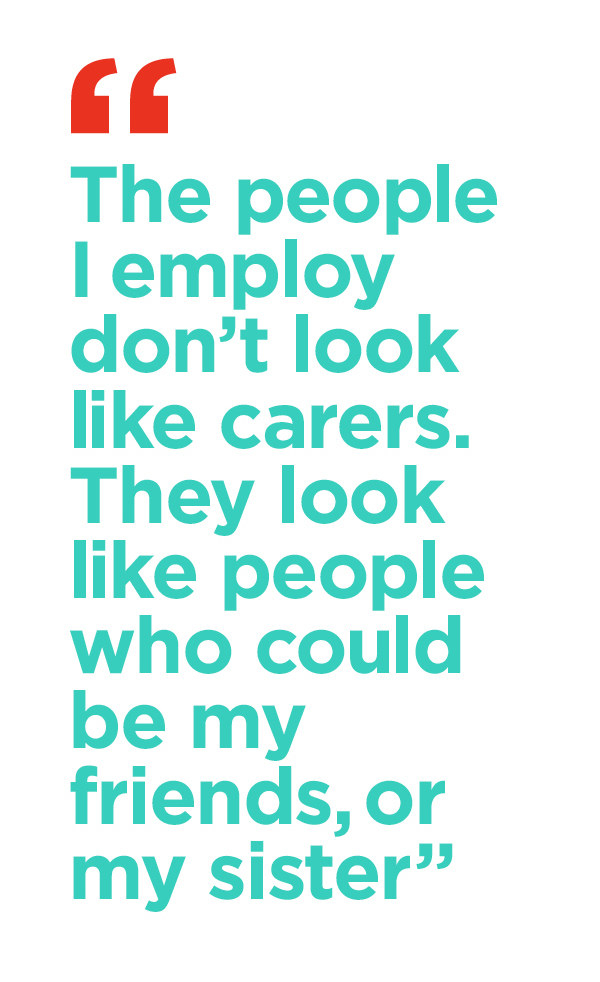
“That’s one of the things I do quite envy about my sister: She could get away with blue murder. She could get away with having a massive tattoo on her back and no one would notice!”
Now she’s away from home, going back can be “quite irritating”. “[Mum] has this tendency to say ‘I don’t want to be your carer; bring your carer home with you,’ and then she’ll breathe down our necks all weekend about how we’re not doing it correctly, or you shouldn’t do it that way, or that we used to do it [this way]. We have our own system in London, so just tone it down a bit!”
Many of her conversations with her mum are dominated not by her studies or her friends, but by which PA is which, and how they are working out. And, of course, “my mum still sees me naked – that’s weird!”
“I think for me it’s not so much the disability, it’s the added stuff that comes with it,” she tells BuzzFeed News. “Having to be that much more of a responsible human being than sometimes I would like to be. There are days when I just want to let my hair down.”
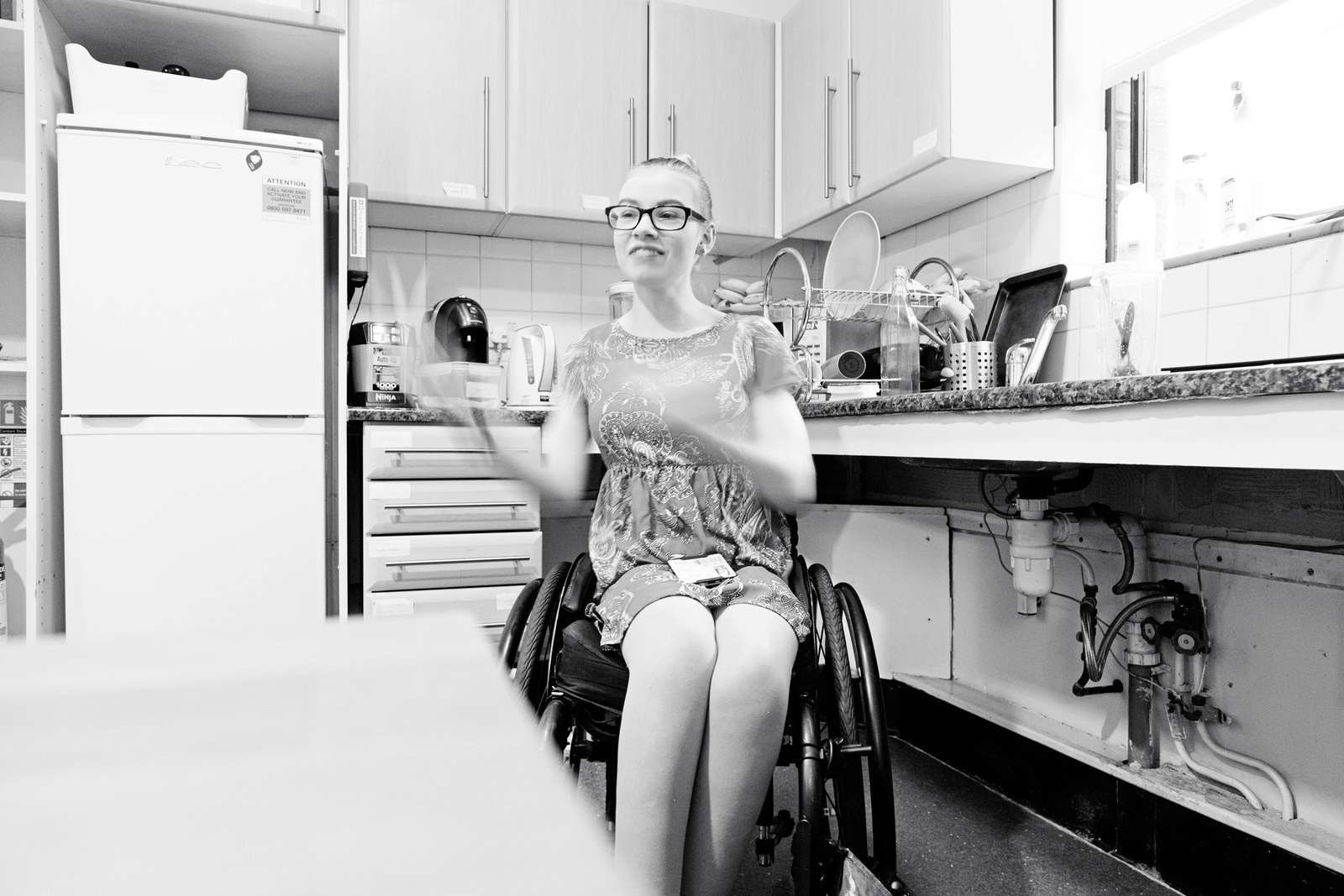
Dedicated friends have helped her do that. When she went to her school’s finishing prom, she says, her friends didn’t want her carer – at that point still her mum – to come and “cramp our style”.
“That was a real eye-opener, because my friends took over and they tried to make it work,” she says. “My boyfriend wasn’t there at the time, and my best friend stepped in and said that she was going to make me have a fun time, and we’ll make it work... She wore a long dress that so many times got caught up in my wheelchair, and it was strapless. So I kept pulling it down…but it was hilarious.”
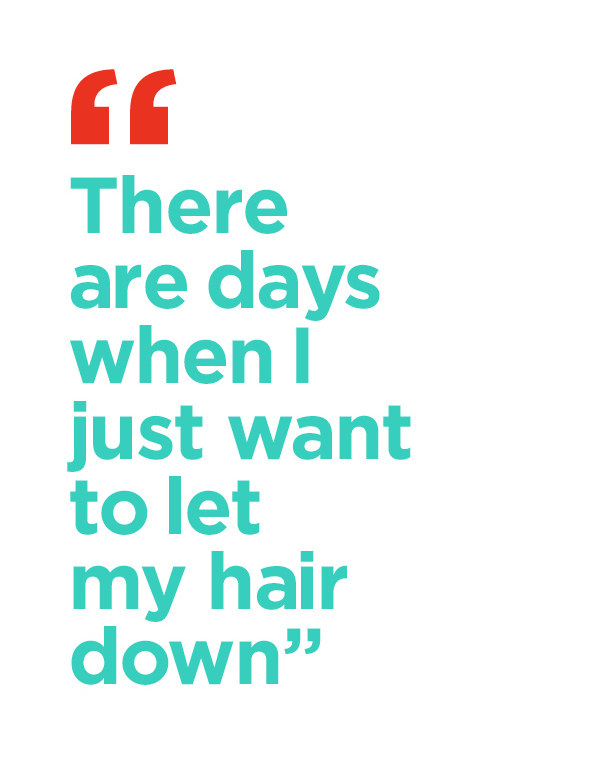
“I don’t know what will happen when I get older,” she says. “I guess my needs and my preferences on carers will change.”
Although CP is a stable condition, Toomey is slowly coming to terms with the fact that as she ages, her body’s natural deterioration may affect the disease and its impact on her life. “How the hell [does that work] with having family, doing all the normal things of moving in with a partner, or whatever? How the hell do you work having an intimate relationship with a partner and also having a carer?”
The short-term nature of her relationships with carers means Toomey is “constantly having to explain the particulars of not just the physical but the mental stuff as well”.
She has struggled with food for years, but says that it has been easy for those looking after her to overlook this, as she can distract them from it to focus on the physical help she needs. “When you have 19 years of practising, I have had all my life to build this sort of fake world.”
Like many students, she is at a key juncture in her life and is dealing with all the stresses that other young people have. It’s something she thinks other people sometimes forget.
“I think people just miss [it] and they think, ‘The only reason she is miserable is that she is disabled,’ not that she is actually going through what every young, high-achieving woman is going through and trying to figure out where she lies in this world – but double that because she has to deal with this extra stuff on top of it.”
